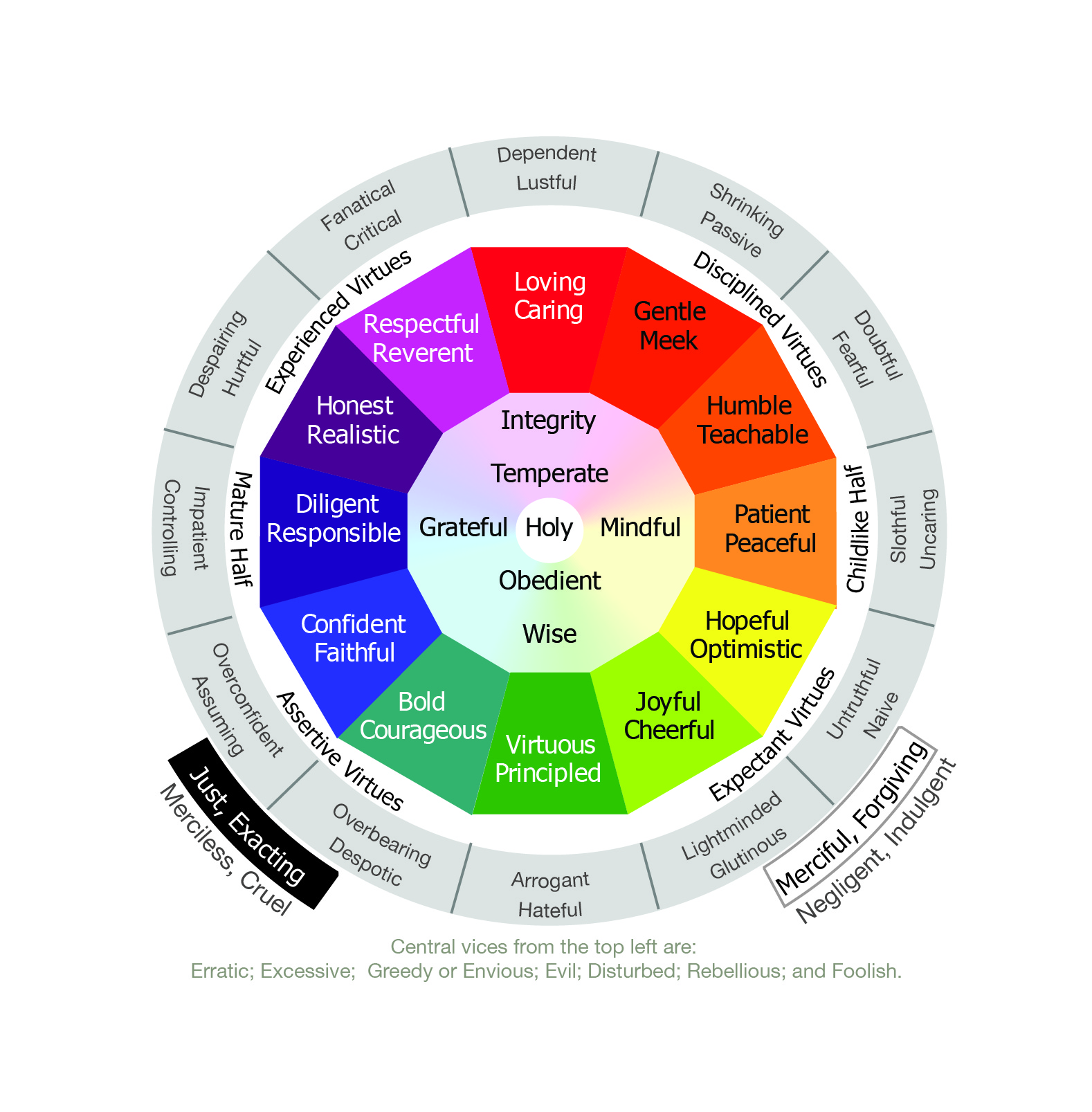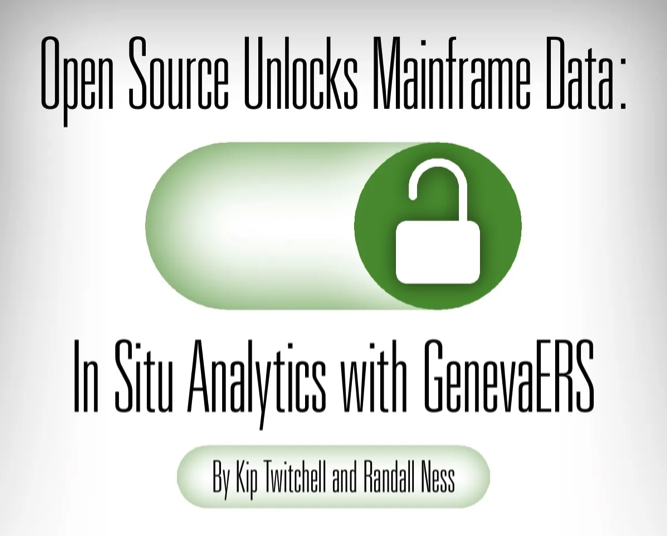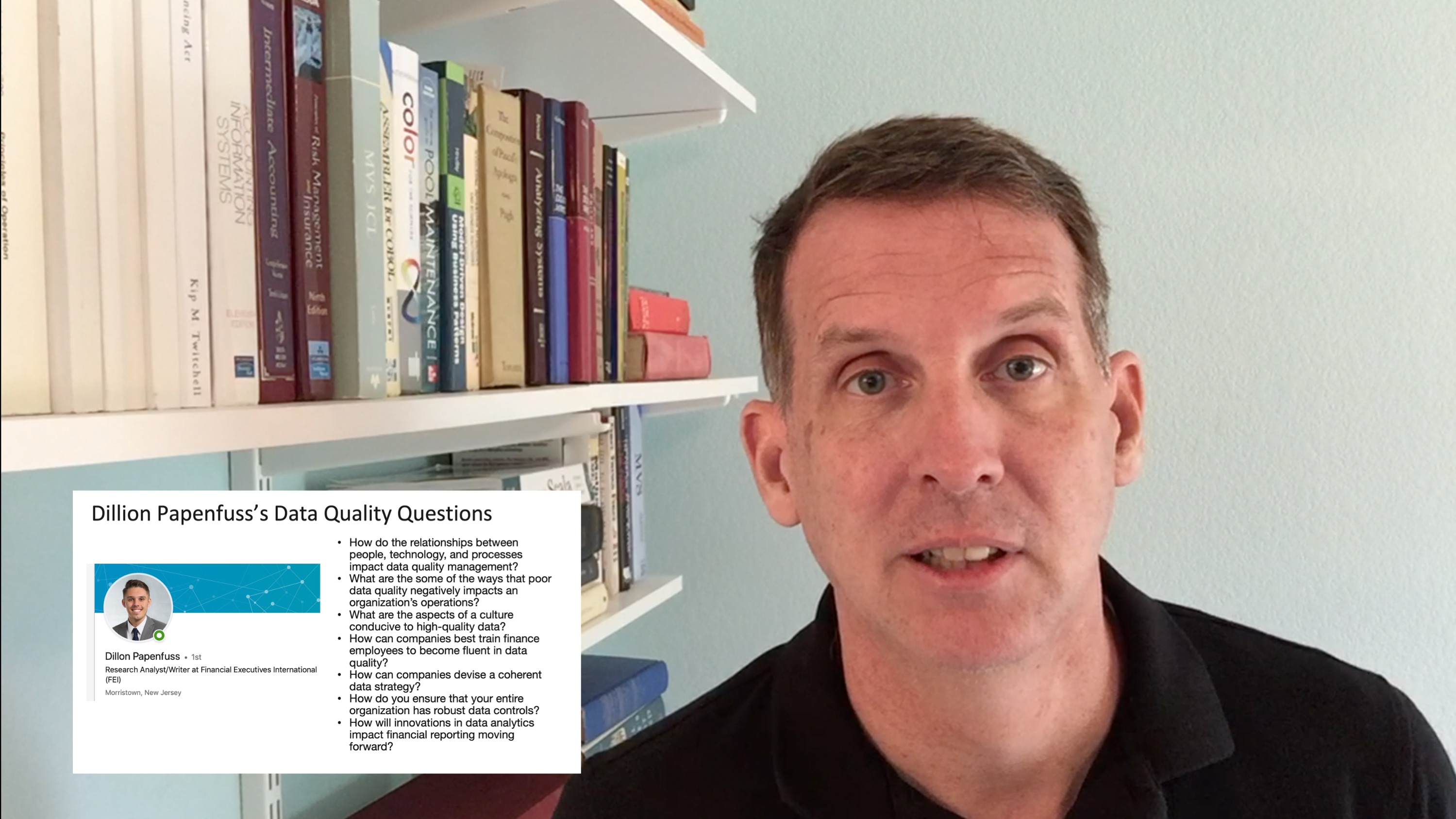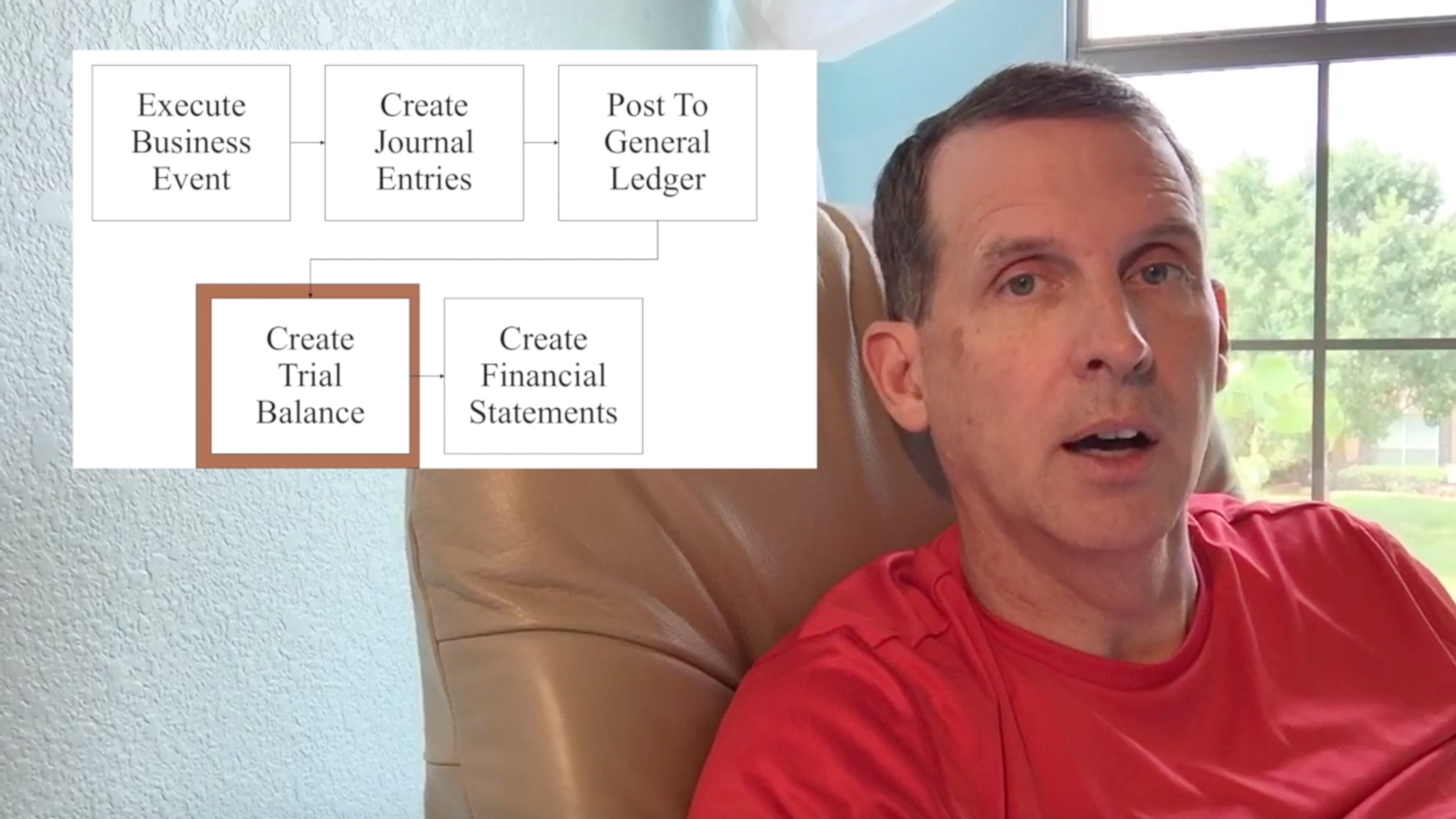In January 2021 I talked with Steven Dickens about what it means to work on the mainframe, making me a mainframer. You can listen to the podcast here:
Steven Dickens: Hello and welcome. My name is Steven Dickens, and welcome to the IBM mainframe, a podcast.
Steven Dickens: Brought to you by The Open Mainframe Project and the Linux Foundation collaborative project focused on open source adoption on the mainframe platform. I’m joined today by Kip Twitchell. Hey Kip. Welcome to the show.
Kip Twitchell: Hi Stephen. Thanks for having me. Glad to be here.
Steven Dickens: So as we do with all the guests on the show. Can you give us a little bit of an overview of your role and where you fit within IBM as an organization?
Kip Twitchell: Yeah, thanks. I came into IBM through a purchase. IBM purchased the consulting firm from PricewaterhouseCoopers.
Kip Twitchell: So I’ve been in a consulting role my entire career. I actually did a couple of years of audit, straight out of school with Price Waterhouse.
Kip Twitchell: But then transferred over to the consulting division. So last year, I celebrated my 30th year of not having changed jobs, even though I changed companies. A good deal of that time has ended up being on the mainframe, but not exclusively on the mainframe.
Steven Dickens: To those of our listeners that aren’t able to see Kip, he must have started his career at age five or six for IBM because he certainly doesn’t look old enough to be celebrating that level of anniversary, but that’s fantastic!
Steven Dickens: Talk to us a little bit about what you’re doing today and what your current role looks like. I think there’s going to be some interesting stuff that you unpack for the listeners. Give us some view of what your role looks like today.
Kip Twitchell: Well, so, you know, I’m excited to be part of The Open Mainframe Project podcast.
I’ve learned that in the last five years, I became more aware of open source, and actually having been a little bit frustrated with the mainframe, I decided to retrain myself to develop code to be able to prototype some new types of systems that I could not get leverage and movement on.
Kip Twitchell: I went, you know, as you do on PC, you just go to the tooling that’s available to you to use it. And that process went well. I got immersed in open source and saw the power of open source and the community. And the ability to provision and test and then decide what to do with it.
Kip Twitchell: For a good portion of my career, on and off in different ways [I worked] with IBM’s [version of GenevaERS called] SAFR [the] Scalable Architect for Financial Reporting. The open mainframe project name is GenevaERS.
Kip Twitchell: I felt it was going to have some power. We had considered divesting IBM of the tooling in 2002 [and went] to Bob Zureck at Acential and had us talk about potentially buying it, and… Bob said to me, “Kip, have you considered open sourcing your tool?” And I said, “Why would we do that?” I had no background on open source. Bob said, ”I don’t know, it’s an idea that came to me.” Well, it took me 15 to 20 years to listen to Bob. And so, last year I proposed inside of IBM that we should consider open sourcing so we approached our customers and they said that would be a great idea, because they depend upon it; we’d like it to grow. We think there’s power in it; we’d like to add a community to it.
Kip Twitchell: So we, IBM, decided to make the donation. Then we were thinking about how to do the open source and got connected to The Open Mainframe Project and John Meric.
Kip Twitchell: We said we’d like to have this be part of The Open Mainframe Project. And so we went forward and I’m the chair of the technical steering committee for GenevaERS and we set up the community. We have people contributing now and it’s a lot of fun. There’s a lot of excitement and growth, and I can see how it’s going to transform the mainframe in years to come. This open-source power of community renews, refreshes, and revitalizes it.
Steven Dickens: I’ve got a perspective on this from being involved in the original donations for the project
Steven Dickens: But how are you? How did you see IBM’s reaction to that donation? You know, we obviously sell license software but it’d be keen to see whether things have changed, maybe over the last five years, and to get your perspective.
Kip Twitchell: Well, yeah, it’s interesting, in some respects, GenevaERS has never been supported by licensed sales. It’s always been a service asset. So in some respects, we’ve got 20 years of open source because we became involved with customers when they couldn’t solve a problem.
Kip Twitchell: And they use a lot of different commercial packages to try to solve the problem and often they would default to GenevaERS as the solution because they needed scale in their reporting.
Kip Twitchell: Well, we’d bring it in and it services setting and installing, often interfacing to systems or building other systems.
Kip Twitchell: We would talk to them about what they needed to do and if we found a feature that the tool didn’t have we would add it as part of the services contract.
Kip Twitchell: So our feature set was always driven by customer demand, and often customer’s would contribute code and we would add the tooling into that.
Kip Twitchell: So when we got to the open source side of things, there wasn’t a big change that we had to make in the business model. Because it’s always been supported in that sort of collaborative effort with customers.
Kip Twitchell: I’ve told people that IBM processes can be very difficult to go through. This open source contribution approval was like falling through open doors. That was a very simple process to get the approval of the process. People understood what it was, how it worked, and the approval really didn’t take very long at all. It was quite surprising to me.
Steven Dickens: So things have changed in the last five years by the sound of it, because it wasn’t like that five years ago. It speaks to the IBM journey in the open source space. So now you’ve got the code donated and you built a community around it.
Steven Dickens: As for adoption. What are you seeing as the community starts to realize this thing here. You’re committed to getting new code. Talk to me a little bit, the vibrancy, and what you’re seeing.
Kip Twitchell: So we’re adding new team members and they’re joining on. We don’t have new customers using the tooling yet, so it’s still kind of from the historical people that have been involved, that is starting to contribute their time to it.
Kip Twitchell: Where we’re going, though, we’re having to make some fairly substantial changes in order to make it open source, using a little bit of tooling involved in it we found afterward that it isn’t compatible with our license. So we’re making some changes. We’ve also come up with some ideas of how we need to integrate more with other open source. One of the key packages that we think that there’s a relationship between GenevaERS and Apache Spark.
Kip Twitchell: And you know, Apache Spark is now along with other packages available on Z. So there’s some relationships between what we do that’s a little bit unique, but some things that Apache Spark does that is related to what we do and they can enhance what we need.
Kip Twitchell: So our work right now is the team envisioning that future and making some of those fundamental changes. We’re actually going to go to perhaps a language interface. Instead of more of a structured programming interface for the development of SAFR/GenevaERS processes. The excitement around that and the influence we’re starting to have about needing places to do z/OS work on public clouds to have community settings.
Kip Twitchell: It is exciting to us and we’re having a lot of interaction and energy coming from our work as a community.
Steven Dickens: So if you have to wind the clock forward a couple of years on this particular community in this product, where would you see what success would look like? What would be a good set of outcomes that you would be looking back and reflecting on?
Kip Twitchell: You know, I’m going to take you, I mean, to answer that question a bit more expansively than what you intended perhaps. One of my passions that I’ve worked on all of my careers is around financial ledgers. If you and I were to go back and be developers and, you know, senior developers, in the 1970s, we would have completely understood the data patterns involved in the ledger and ledger transactions.
Kip Twitchell: And on a periodic basis, it makes balances out of those and the balances are what drives business forward to incorporate all of the history.
Kip Twitchell: That goes on and the transaction is all encapsulated in the balance when you log into your financials, your bank, your credit card.
Kip Twitchell: The first number you’re showing is the balance. Well, that process of turning transactions into balances because all of that stuff was automated so early.
Kip Twitchell: Most people have forgotten that. That’s the basic pattern of a legend in a business system, a financial system is really a ledger at its core.
Kip Twitchell: And you even have things like Blockchain that call themselves distributed ledger and they have no posting processes.
Kip Twitchell: It’s amazing to me how far we’ve gone away from that basic understanding of this thing. What’s interesting to me is that the systems that haven’t migrated off of Z are these large business systems and a lot of it is because that pattern of processing is so powerful on Z on the mainframe is why many of them have not migrated off.
Kip Twitchell: So we’re having an impact. I think, and we will continue to have an impact thinking about those large business systems of these large financial ledgers.
Kip Twitchell: How to enhance and drive them down to a lower levels of detail than we historically did because now we have so much more computing capacity and that cost is lower and our need for data is greater.
Kip Twitchell: So changing the systems that were architected in the 70s and 80s to enhance them but not running away, not losing the key value that comes from ledger-like processing.
Kip Twitchell: GenevaERS is positioned, it’s not required to do a ledger, but it enables ledgers in a very different way. So it’s going to be interesting to me to see in three to four years time, we’re starting to see companies taking some of their legacy systems that aren’t what they would call a strategic IP asset, maybe something do accounts payable, accounts receivable or fixed assets that they’re doing on the mainframe. Contributing that source code out to open source and having other companies that have similar type systems to incent their business functions starting to work in an open source manner.
Kip Twitchell: On those kinds of applications that we’ve had difficulty in changing and renewing and refreshing. Because now, people see the power of community is key.
Kip Twitchell: Key resources inside these business systems, you know, two or three people that know these very key systems, and they’re always isolated.
Kip Twitchell: If they can talk to two or three people, similar to them in another company, you’ll start to unlock ideas and energy out of those sets of people by connecting them across company lines.
Kip Twitchell: And we’ll start diving into these business systems that really have not changed in a couple of decades in very substantial ways.
Steven Dickens: You’re right Kip, that was a lot more expansive an answer I was looking for. But I think it’s really fascinating talking about.
Steven Dickens: And hearing you describe how you see the opening up of these core systems. The opening up of people as they look at these core business functions.
Steven Dickens: If you’d have said those things, four or five years ago. It would have been a crazy discussion, but I think now you look at the amount of contributions we’ve got into The Open Mainframe Project over the last five years that’s taking hold in the mainframe community. And I think that mindset with what we’re doing here as a project. It gives us just the perfect chance to be that umbrella, that home for those projects, that give them a place to come and provide all of the sorts of guardrails and infrastructure for them to flourish.
Steven Dickens: It’s interesting the way you describe it. I think this market is changing through the adoption of open source is probably what was the poster child for the closed source system we’re seeing open source methodology take hold. So now it’s really interesting.
Kip Twitchell: Well, and, you know, that open source really was the first instance system of its kind. So it started with that sharing mindset and became the kind of closed.
Kip Twitchell: The reaction to the profit margins involved and the cost involved for proprietary systems, open source was a reaction to that.
Kip Twitchell: A bell curve where we’re now moving back to a different kind of cost model that’s a shared community way of doing things. It’s natural that the power of z, the underlying infrastructure.
I just to take a moment, in my Open Mainframe Project Summit video that I released that week. I said, you know, when you go to cloud-based systems, the way the system deals with the failure rates on cloud-based systems is through redundancy. You know, you run multiples of these things. And if one of them fails, then you’re okay.
Kip Twitchell: Well for these core financial systems, these business systems’ redundancy adds complexity to the business process and the business process for these processing requirements. The functional requirements are more complex. So when you add redundancy it just makes it too complex. And that’s often why these systems don’t get migrated off because the engineering that went into Z to drive the error rates to zero, right, is what enables these business applications to flourish and do what they do.
Kip Twitchell: So open that power of having error rates near zero, which is what this is about at an open source mindset to the development and community is what will allow this transition to happen. I think.
Steven Dickens: So I couldn’t agree more. I think we’re at an inflection point.
Steven Dickens: One of the questions I always ask our guests on here is that you mentioned you were 30 years plus in your career and we joked that you must be in your mid-30s, because you started very young at IBM. What advice would you give to your younger self, if you’ve got the chance to go back?
Steven Dickens: Go back and chat to your younger self just as you’re embarking on your career from leaving college. What would you be saying? We’ve got a lot of younger listeners and I asked this question and it always gets some interesting feedback.
Kip Twitchell: Yeah, so, you know, as you asked that there was an article I read via a person that had set up multiple businesses and he was giving advice to college students. He said, You know, it’s really hard for you to imagine how long it really takes to set up a business, how long it takes to do things. Right? In a certain sense, I’ve never really aspired to set up my own business, but I have aspired to have this kind of community work involvement and I’ve had it at different times throughout my career.
Kip Twitchell: But, being able to work in the open source, set up the open source community, and do it there is doing it in a much fuller sense than I’ve done it before. Well, you know that took me a long time to get to. So I told somebody a few years ago, but sometimes people think that having patients is a weakness. Leaders need to drive and be demanding and that sort of thing.
Kip Twitchell: I suggested to them, I said, “You know, a patient person can demand activity when needed, but an impatient person can’t be patient when patience is the only thing that will solve the problem. A patient person can be patient when that’s the only thing that will solve the problem.
Kip Twitchell: So if you’re going to grow your career. There are going to be times where you have to be patient. I’ve had to learn how to work through periods where I wasn’t at the center of problems. And I was working on things that didn’t seem all that important and that I had to strengthen my own capabilities.
Kip Twitchell: That’s one thing that I think in my career that would have been helpful for me at those times to be more patient because it takes a long time to grow something, if you have a big vision, it takes a long time to get there.
Steven Dickens: I think that’s fantastic feedback. I think as you say it goes counter to what a lot of people would advise: to move fast, fail fast, take chances. Move. Move.
Steven Dickens: Two different roles. It’s the classic feedback you get, but I think that message of patients, especially if you’re looking to build a long term career in a particular field. I think that makes sense and maybe would suit some of our listeners don’t buy into that kind of feedback they’ve been given and that doesn’t naturally match their style.
Steven Dickens: So no, that’s interesting. Just the way you put it Kip, kind of resonated with me. So as we look to wrap up, one final question, I tend to ask Is where do you see the mainframe as a platform, say, three to five years out from now, as we’re talking about before the show. You’ve got potentially a longer horizon than that but maybe just for the listeners, frame what you think about the platform three to five years out from where it is today.
Kip Twitchell: Yeah, so, I said recently. The interesting connection point is open sources are so much more prevalent on Linux, right, it comes from the open source community developed more from that side, whereas Z OS specifically was more proprietary.
Kip Twitchell: The interesting thing on the mainframe, to me, is UNIX system services and how, in a certain sense, it’s not necessarily Linux, but it has a close relationship to Linux, right.
Kip Twitchell: How that environment provides a bridge that the activity on the Linux side of things going through that space is going to, I think, affect z/OS more directly. Not that it’s the only route by which it goes, right, GitHub directly, Zowe and ISPF and Jenkins and all of these build tools will come from different routes than that to go effect z/OS.
Kip Twitchell: But that migration of functionality and pulling people across, you know, people coming across from Linux into UNIX system services, will then begin to get access into z/OS and start to learn the unique features of platform, the ones that they have to learn. They won’t need to learn all of them.
Kip Twitchell: Some of them will be hidden because they’ll just be working, you know, Zowe sees that today, people don’t have to become mainframers to develop. So that process is going to bring new kinds of skills, new sorts of capabilities onto the mainframe, open it up to new kinds of developers, and those kinds of additions will start to create an interesting community in the a/OS space and do a fairly substantial transition in that space over the next five years, I think.
Steven Dickens: Yeah, I tend to agree. I think we’re seeing the community pull a lot of people into the platform who maybe weren’t mainframers, or maybe were developers but weren’t mainframe savvy. It’s lowering that bar to entry. So I think the more things we can do to open the platform and make it less special in the wrong way. Keep the special in the right way. But, remove the special in the wrong way and make it an easier platform for people to interact with.
Kip Twitchell: That was just one point on that. The thing that the [Open Mainframe Project] TAC [Technical Advisory] Committee as they approved GenevaERS they said, GenevaERS is interesting because it does transaction processing. It’s feeling with the heart of what z/OS is about as opposed to just user interface and build processes.
Kip Twitchell: We need more open source things that deal right at the heart, particularly of batch processing. Batch is going to go to streaming, but in some cases, batch is still very efficient.
Kip Twitchell: That’s a space where the transaction and batch, where analytical processes connect to transaction and transaction processing, that space is the place that will have a real growth because Z is so powerful in that space.
Steven Dickens: Yeah. Couldn’t agree more. So as we look to wrap up. Is there anything else you’d like to share with the listeners, by way of parting comments, or anything else that we’ve made is missed and in our time together today?
Kip Twitchell: You know it. I’d suggest finding a little bit of time to volunteer to an open source community. It is something that will pay dividends for you over a long period of time, even if it’s an hour a week.
Kip Twitchell: Outside of whatever your crushing business world obligations are, on some open source community if it’s just reading about things, or maybe building some documentation editing something
Kip Twitchell: Building a little utility giving some testing feedback that sort of work, will start to transition who you are if you’re a mainframe developer and will start to pay you dividends over a very long period of time as you grow because it’ll suck you in and you’ll change how you develop them by what you know.
Steven Dickens: Well, I think I couldn’t think of a better way to wrap the I Am A Mainframe podcast kids. So thank you very much for your time today. Really appreciate it.
Kip Twitchell: Glad to be here. Thanks for asking, Steve.
Steven Dickens: You’ve been listening to the I AM A Mainframe Podcast. My name is Stephen Dickens. If you liked the show, please click the link below and subscribe.
Steven Dickens: Take a couple of moments to give us a five star rating that always helps with our rankings and I’ll look forward to speaking to you again on the next episode of the I AM A Mainframer Podcast.





Leave a Reply